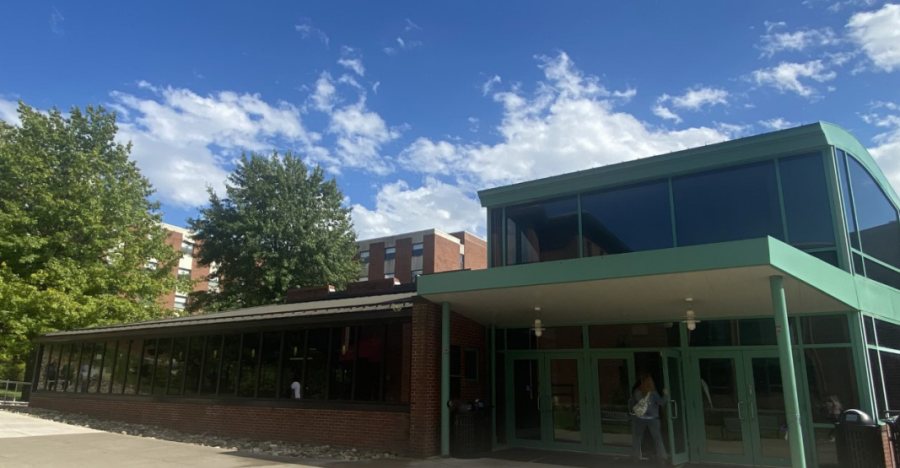Should Minimum Wage be Raised for On-Campus Food Workers?
September 16, 2022
It’s an everyday affair for many here on campus: getting a fresh meal in between classes or after a long day of studies. However, there is a serious factor that many can forget. The people who prepare, serve, and keep our facilities functioning, and keep us fed. Yet things at our dining facilities have not been what they used to be. We have all surely seen it. The closures of Roongo’s and the weekday operation of the Commons Starbucks. The labor shortages with the stations being manned sometimes by only one person.
This has not gone unnoticed. Several weeks ago a student on campus, Connor Davis, created a petition that was created with the cause of raising the minimum wage for food service workers. As we know, earlier this year the wage was increased to 12 dollars an hour for student workers, but the question is: Is it enough? Davis argues it is not. Davis, who had questioned some food service workers, learned that full-time workers make slightly more than student workers, though they were not allowed to reveal their wage when compared to the 18 to 20 dollar minimum wage that Sheetz employees can have and the 15 dollars an hour of Walmart. At the mention of Walmart, they reported to have answered with: “Oh I don’t make that much.” The conversation arose after Davis overheard the following comment: “I would not work here if they didn’t give us the raise because I am about to quit if they keep us at this pay.” Davis believes that one of the biggest contributing factors to the lack of people looking to be hired is an issue many of us know well: stress.
Davis makes reference to IT jobs here on campus. He has worked in IT and they make around 9.50. However, he says that the stress involved is nothing compared to the job of the food service workers who can make roughly more than 2 dollars more. On top of that, he argues that the stress of schoolwork is a big factor for the lack of students taking up a job. Even then there are some who wait weeks to hear back. One senior on campus who wished to be anonymous had reached out to Aramark. When she applied she had to wait two weeks until she received a call for her availability. Since then, another two weeks have passed and she has yet to hear anything else. This totals four weeks since she first applied.
Aramark contacted Davis after he filed a complaint. The response he was given stated that the minimum wage was agreed upon as the bottom line by the Union that represents the food service workers and that they were as close to it as possible. This means the workers agreed their basic means to get by is roughly 12 dollars an hour. As Davis put it, “The problem now with gas, housing, and grocery prices going up $12 is a very barebones estimate.” An important fact he brought up was the well-being of the workers. With the labor shortages, the effect on the workers can be seen. John Scheers, the Aramark Marketing Manager for the campus, was reached out to for comment. They stated, “We strive to offer compensation that is competitive. We respect our employees and value their contributions. We also recognize that the current environment is challenging for all involved, given the national labor shortage and high inflation.”
However, our campus isn’t the only one seeing problems of this sort. Two other universities Kutztown and Slippery Rock have been having problems of their own with Aramark. The company that provides the food services on campus. Kutztown has seen labor shortages, facility closures, and limited dining hours. Their on-campus Starbucks along with their coffee bar has been closed until further notice. Carin Holmes, a reporter for the university newspaper The Keystone, wrote about problems Kutztown food service workers were having with their pay. There, some were making 12 dollars an hour meanwhile, a worker who had been there for 33 years was only making 15 dollars an hour.
Over at Slippery Rock, Matthew Glover of their student paper, the Rocket, wrote that during the first two weeks of the semester their food service employees were understaffed by as many as 23 people. During that time, union members were reported to have authorized a strike. The demands listed were competitive wages and affordable healthcare with deductibles reportedly being as high as 2,250 annually. Wages for workers over there were as low as 14.25 an hour. However, things seemed to have improved as union negotiations succeeded in a new contract with an immediate raise of 3 dollars as well as a raise of 1.75 for the next two years. The new healthcare plan they were after seemingly didn’t materialize, but their premium rates went down from 75 to 45 dollars.
We are seeing a serious trend that isn’t just contained to our campus, from labor shortages to complaints about pay. However, as seen with Slippery Rock, there is an opening for compromises and change. As for Connor, he is waiting to see the effect the petition will have. At the time of writing this, it is currently sitting at 74 signatures, though he has stated he wants it to be school-wide so it gets the attention of University Staff. With this, the people who work to provide us with our meals go to their lengths to serve us with a smile on their faces. One thing to be learned from all of this is it is our job to make sure our food service workers get the recognition, gratitude, and pay they deserve.


















